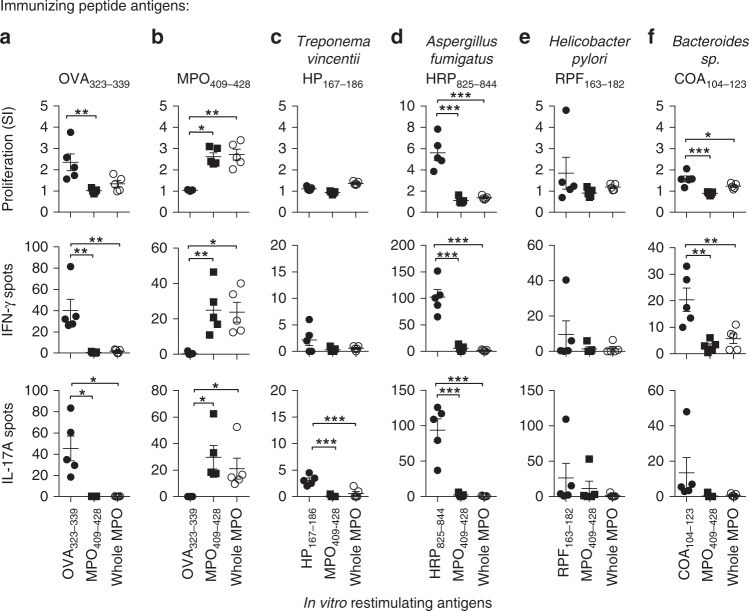Fig. 1.
Microbe-derived peptides with closest sequence homology to MPO409–428 do not induce cross-reactivity to MPO. C57BL/6 mice (n = 5 each group) were immunized with peptides, either a OVA323–339 (negative control), b MPO409–428 (positive control), c Treponema vincentii-derived hypothetical protein, HP167–186, d Aspergillus fumigatus-derived HEAT repeat protein, HRP825–844, e Helicobacter pylori-derived RNA polymerase factor sigma-54, RPF163–182, or f Bacteroides sp.-derived chloramphenicol O-acetyltransferase, COA104–123, then, T-cell recall responses measured ex vivo by restimulating draining lymph node cells with either the immunizing peptide, MPO409–428 or recombinant mouse MPO (rmMPO) by [3H]-thymidine proliferation assays (top row), and ELISPOT for IFN-γ (middle row) or IL-17A (bottom row). Each dot represents the response from one mouse, error bars are the mean ± s.e.m. Data are representative of two independent experiments. *P < 0.05, **P < 0.01, ***P < 0.001 by Kruskal–Wallis test. Source data are provided as a Source Data file

